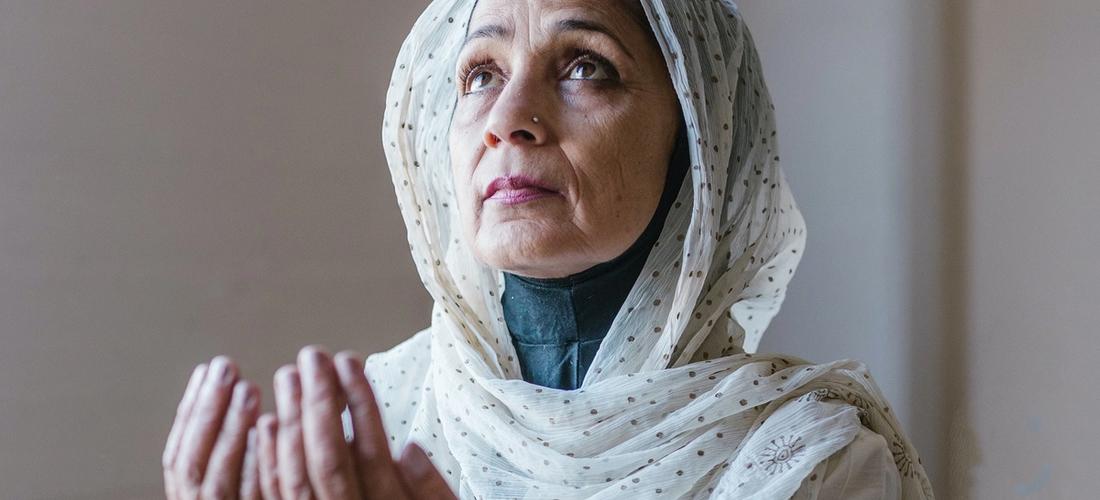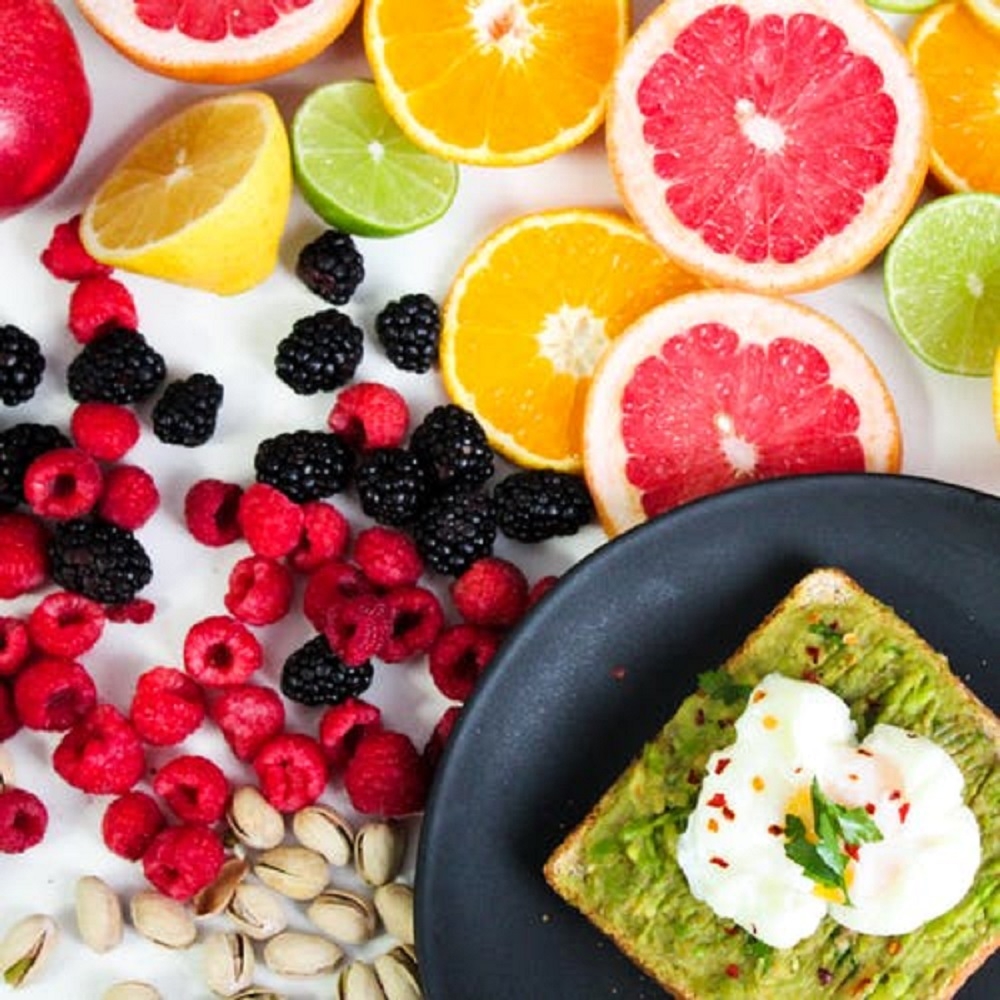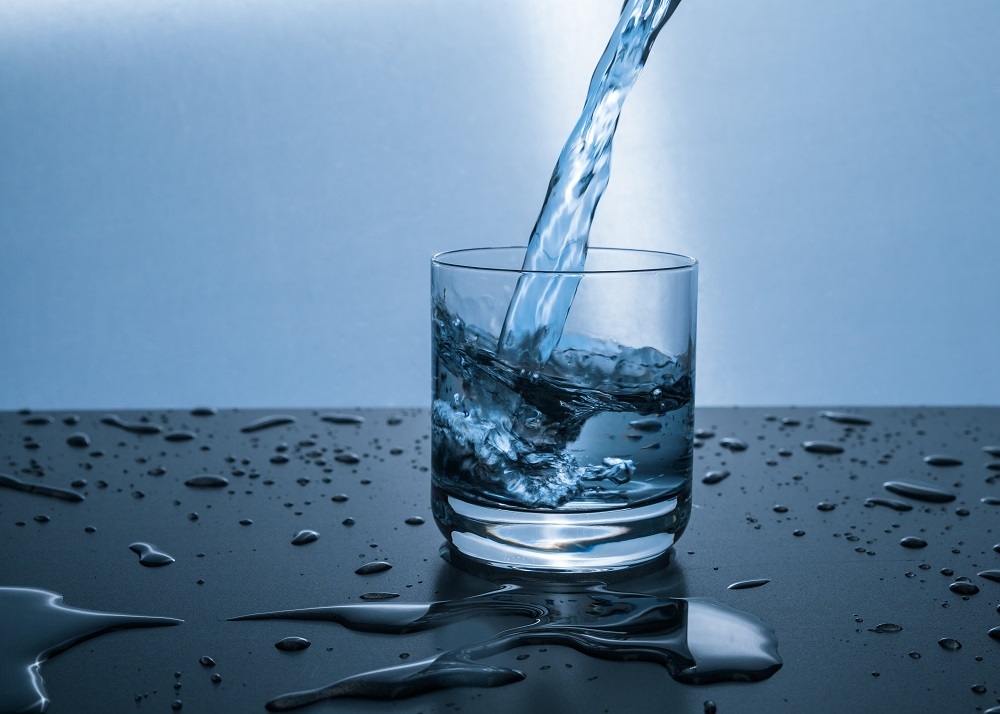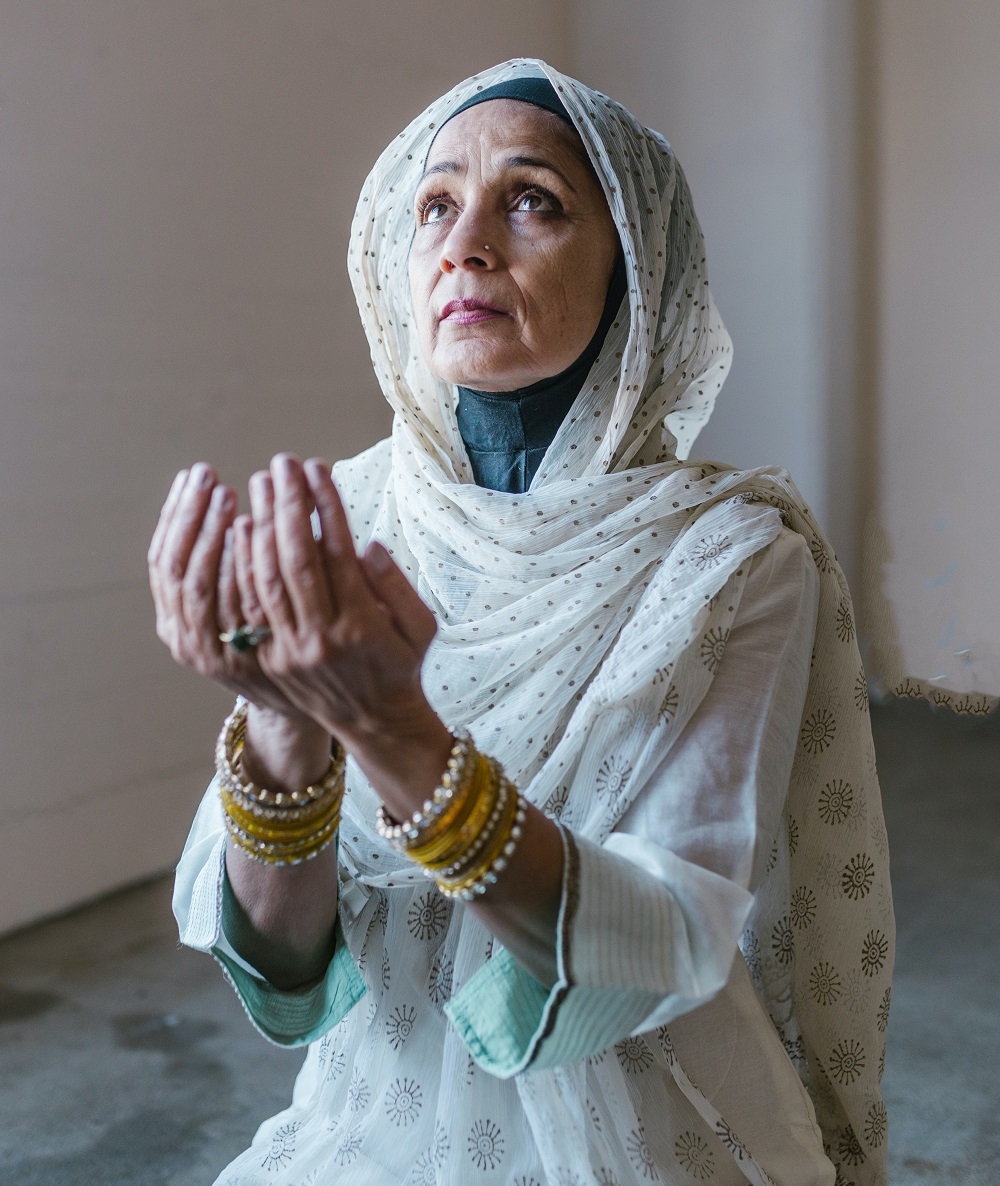When 30 Days of Fasting Becomes Your Norm – Tips for Managing Menopause in Ramadan
Lifestyle
|
Apr 20, 2022
|
8 MIN READ

Image source: Pexels
We are all grateful to Allah (S) for each day he gives us to worship him and live our lives. He is in control of how long we live, granting some more time than others. Allah (S) says:
And Allah created you; then He will take you in death. And among you is he who is reversed to the most decrepit [old] age so that he will not know, after [having had] knowledge, a thing. Indeed, Allah is Knowing and Competent.
[Sūrat l-Nahl 16:70]
The more time we spend in this dunya (world), the more opportunities our Creator provides us to earn His pleasure and mercy. However, as the above verse from the Quran reminds us, as Allah (S) extends our lives in this dunya, our bodies transition and weaken. We may not notice it in our youth, but with age comes changes that can impact how we experience life and engage in our ibadah (acts of worship), especially for women.
This past year, I experienced the onset of menopause, a decline of reproductive hormones that many women experience in their 40s or 50s. Although many women enter menopause as part of their body’s aging process, some women experience surgical menopause, where a procedure that involves removing a woman’s ovaries serves as a catalyst to bring on menopause before it may occur naturally. Thus women who undergo surgical menopause find themselves experiencing it ahead whatever their natural schedule is. Chemotherapy may also induce menopause.
A primary sign that a person is in menopause is 12 months without a period. Because of the changes in the levels of hormones estrogen and progesterone, a person in menopause can experience a range of symptoms, including fatigue, hot flashes, sweating/night sweats, insomnia, vaginal dryness, reduced sex drive, dry skin, thinning hair and anxiety. Yeah, it’s a barrel of fun!
I was forewarned by my gynecologist in January of last year that I would experience menopause after emergency surgery to remove my ovaries. I buckled down and prepared to usher in a new stage in my life, one where I was no longer a reproductive being. After years of drama from infertility (a story for another day), several pregnancies and six beautiful kids, I was fine with the prospect of no more baby making. I wasn’t ready, however, for how menopause would affect my worship, especially during Ramadan.
Our bodies are vulnerable things, open to illness, disease and disability. Internally, we also may experience mental afflictions and decline, all of which can influence the ways we engage in our worship, making the necessary concessions based on Islamic teachings and benefiting from Allah (S) mercy. I had already adjusted to praying seated due to arthritis, realizing that my aging body would require me to find the best options for me to worship Allah (S) and take care of myself so I can continue to do so.
Menopause brought new symptoms for me to contend with every day. I learned to deal with them, but with the advent of Ramadan, I realized that they presented enhanced physical discomforts while fasting, and I had to devise ways to reduce their impact on my body and worship. I also realized that now I would be fasting a full 30 days instead of experiencing the usual break menstruating women get during the fasting month. Below are a few of the symptoms that required my special attention during Ramadan.
Managing Fatigue
A lack of energy and weakness can be a big issue during menopause for a number of reasons, including those fluctuating hormones. Fasting during Ramadan may also cause fatigue, so some menopausal women may experience a double whammy of exhaustion. I sure have!

A few things that helped me keep back the fatigue was to eat a healthy suhoor and iftar – something not particularly easy during the last half of Ramadan, but I try. My meals often include vegetables, fruits (I prefer low-sugar fruit like berries), lean meats, fish (especially fish rich in Omega 3 fatty acids, like salmon), and protein-rich dairy like plain Greek yogurt with no sugar. If I am eating at the masjid, I make sure to load at least half my plate with fresh salad. There is almost always plenty. It’s best to try and make the healthiest choice you can when you can.
I also make sure to drink plenty of water at suhoor and iftar because dehydration can zap one’s precious energy, which may already be in short supply because of menopause. Try sipping water throughout the night.
It’s important to keep a consistent sleep schedule, but with the late-night hours of worship during Ramadan, that may be difficult. Consider taking a nap, if possible.
Those Dreaded Hot Flashes
I am not a fan, but I do have a bunch of them.
The rush of heat from shifting hormones has me breaking out in a sweat and racing outside into the cold winter night on more than one occasion. I wanted to go the drug-free way to prevent them and found relief by dressing lightly and having a personal fan at my desk and bedside. I also found that exercise helped, but that had to stop during Ramadan.
Hot flashes and hijab can be an uncomfortable combo. Assess your wardrobe, and pick fabrics that will keep you cool, especially during prayer. (Haute Hijab’s Bamboo Wovens are always a good and more breathable choice.) Pull as much clothing off as possible, when possible! What’s the use of being miserable? If you’re going to the masjid for congregational prayers. like tarawih, consider a loose abaya with a t-shirt and loose pants underneath.
Hot flashes may also present a problem during tarawih. Try to avoid the middle of prayer lines at the masjid. Wait until everyone is lined up and join a line at the end. A portable fan in front of you may also help if a hot flash hits. You may also want to consider praying tarawih at home, which is allowable.
Night Sweats
For women in menopause, night sweats are hot flashes that happen when the person is asleep and may result in them waking up covered in sweat. Isn’t that just special?
Try to keep where you sleep cool. I turn down the thermostat and tell my family members to put extra blankets on their beds. The last thing you will want to do during Ramadan is to peel off drenched clothing before standing for qiyamul layl and tahajjud late-night prayers, so dressing in cool, breathable fabrics is also important.
You will also want to have a sheet and layers of light blankets instead of a single heavy one. That way, you can throw them off or cuddle under them as needed depending on how hot or cool you feel.
Avoiding spicy foods and hot drinks during the evening may also help with night sweats, but who can do that during Ramadan? You may have to forgo the iftar chili and chai if nothing else keeps you from waking up drenched. Unless you like opening your eyes to that clammy feeling.
Sweating and Dehydration

Image source: Pixabay on Pexels
I am mentioning sweating again because it can cause dehydration, something we all have to look out for during Ramadan. The hot flashes and night sweats caused by menopause can lead to a loss of bodily fluids faster than one can replace them, which is why it is critical to one’s health to look out for signs of dehydration while fasting, like:
- Fatigue
- Dry mouth
- Increased thirst
- Decreased urination
- Less tear production
- Dry skin
- Constipation
- Dizziness
- Lightheadedness
- Headache (source: https://www.healthline.com/)
Avoid dehydration from sweating and fasting by maintaining optimum hydration during the hours that you can eat and drink. Allah (S) says:
And eat and drink until the white thread of dawn becomes distinct to you from the black thread [of night].
[Surat Al-Baqarah 2:187]
So, keep water handy everywhere during the evening hours of Ramadan. When going to the masjid for salah, grab one of the millions of bottles of water provided by the masjid before joining the ranks. Have some by your bedside to sip throughout the night.
There are products available that help to combat and mitigate dehydration and help you protect against it - tablets you can dissolve in water and drink at suhoor or iftar and other such things. Muslims who work out regularly or play sports during Ramadan while fasting often swear by these products, which help to rapidly replace electrolytes and other essential minerals. I haven’t used any of these myself, but you’re welcome to do your own research and speak to your doctor to see if it can help you avoid dehydration while fasting and managing menopausal symptoms.
Eat hydrating foods like cucumber, watermelon, celery or apples, and avoid salty and sugary foods and caffeine.
Anxiety and Mood Swings

Image source: Pexels
Ramadan is the month of patience, a time when observers implement self-control hallmarked by their refraining from food, drink and sexual satisfaction from sunup to sundown. While it may be easy to abstain from those things, anxiety and mood swings (brought on by the hormonal fluctuation from menopause) can make it difficult to exhibit the patience idealized in Ramadan.
Menopausal anxiety can provoke the aforementioned hot flashes and sweat as well as shortness of breath, chills, heart palpitations and more symptoms that can make it hard to concentrate in salah and on other forms of ibadah. In addition, menopause may be the source of mood swings, causing a person to shift from feelings of sadness to irritability, anger and despair. Mood swings can dampen motivation and make it hard for one to concentrate, which can negatively impact khushoo (tranquility and humility) during salah and focus while reading Quran and making dhikr in Ramadan.
I struggle with anxiety and mood swings while I fast, pray and read Quran. One thing that helps is to make du’a to Allah (S) for relief. Meditation and rhythmic breathing exercises to calm oneself can also help. Reciting Quran has been a huge help in soothing my anxiety and despair. The tips in my article, “8 Tips for Finishing a Quran Reading in Ramadan,” help me to establish a time to honor my relationship with Allah’s (S) book and use it as a source of guidance and peace.
Long dhikr, when I have the time, can also decrease anxiety and increase hope in Allah’s (S) mercy. The repetitiveness of dhikr can be quite soothing.
But let’s be honest: Mood swings are going to happen, even in Ramadan. I give myself permission to be human, knowing that nobody’s Ramadan is a perfect 30 days of piety.
There are so many articles and videos out there about having a successful Ramadan. It would be nice if one of our scholars addressed the holy month and women going through menopause and the best ways to cope. Until then, take the advice I’ve shared above and with some planning and self-care, you can enjoy Ramadan while in menopause and transitioning into the next stage of life.
As with most things, Insha’Allah menopause will pass and fasting for an entire 30 days without a menstruation break will become your new normal. And that, Insha’Allah, can be another new and wonderful stage of life.
What are some ways you deal with menopause in Ramadan? Leave a comment!
Subscribe to be the first to know about new product releases, styling ideas and more.
What products are you interested in?


